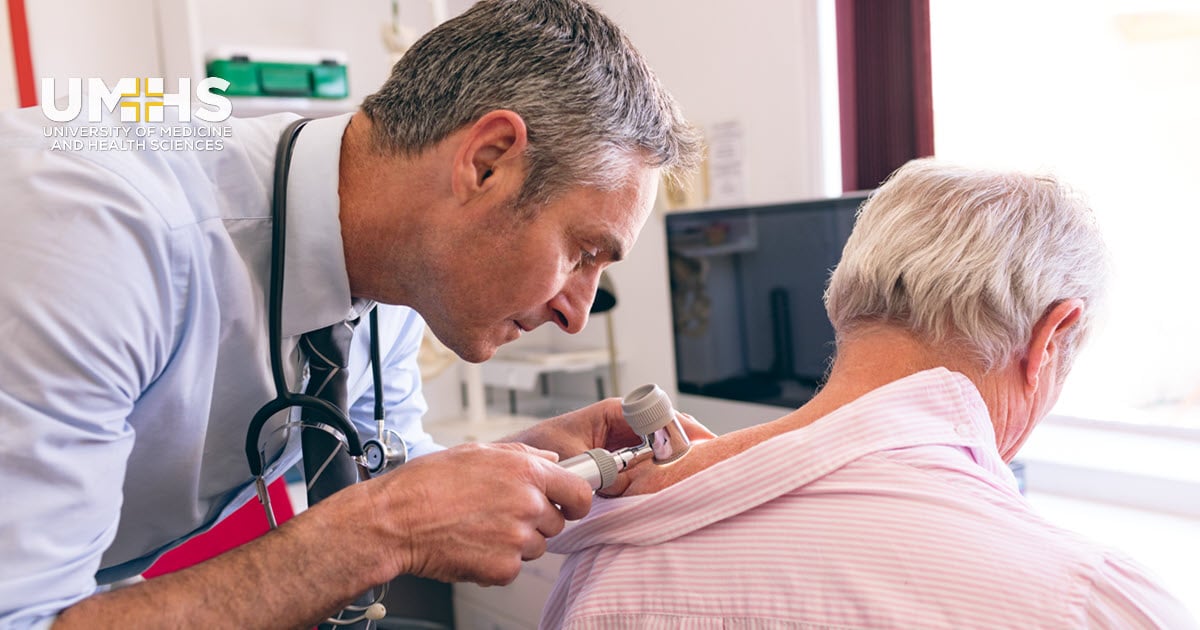Exploring the Role of Skin Doctors in Detecting and Dealing With Diverse Skin Conditions With Accuracy
The field of dermatology plays an essential function in identifying and managing a large variety of skin problems that individuals might encounter. From typical issues like acne and dermatitis to a lot more complex problems such as cancer malignancy or unusual genetic skin illness, skin doctors go to the center of detecting and treating these problems with accuracy. With developments in analysis tools and customized therapy techniques, skin specialists are progressively able to tailor interventions to private people' demands - Chromaderm Dermatologist. Nevertheless, past the surface area of skin conditions lie interconnected variables that affect medical diagnosis and therapy results. Comprehending the detailed web of genetic, ecological, and way of life components that add to skin health and wellness is important for comprehensive treatment.
Importance of Early Detection
Very early discovery of skin problems plays an important function in the reliable therapy and administration by dermatologists. Skin doctors count on their know-how to recognize subtle adjustments in the skin that might indicate underlying issues, such as skin cancer cells, dermatitis, dermatitis, or psoriasis.
Additionally, very early detection enables skin specialists to customize therapy plans to the certain demands of each patient. For example, finding skin cancer cells in its early stages considerably boosts the prognosis and increases the chance of successful treatment end results. By interfering early, skin specialists can also help ease signs and symptoms, prevent aggravating of the problem, and enhance the overall top quality of life for their individuals. As a result, emphasizing the significance of early detection underscores the essential duty that dermatologists play in promoting skin health and wellness.
Advanced Diagnostic Strategies
Utilizing state-of-the-art innovation and customized experience, dermatologists use sophisticated diagnostic methods to accurately identify and examine different skin disease. One of the key devices in the skin specialist's diagnostic toolbox is dermoscopy, a non-invasive technique that enables the assessment of skin frameworks not noticeable to the nude eye. By magnifying the skin, dermoscopy aids in the very early detection of melanoma, basal cell cancer, and other skin cancers. In addition, dermatologists may utilize confocal microscopy, a high-resolution imaging strategy that allows them to envision skin at a cellular level without the requirement for a biopsy. This modern technology is especially helpful in diagnosing inflammatory skin disease and monitoring treatment efficacy.
In addition, molecular testing has actually transformed the diagnosis and therapy of skin diseases by allowing skin doctors to analyze hereditary anomalies related to conditions such as melanoma and genetic dermatoses. With methods like polymerase chain response (PCR) and next-generation sequencing (NGS), skin doctors can offer customized treatment strategies based upon a person's particular hereditary profile. These innovative diagnostic devices boost the accuracy and efficacy of skin-related care, inevitably leading to much better end results for people.

Tailored Therapy Approaches
With a detailed understanding of skin problem achieved through advanced diagnostic techniques, skin doctors customize therapy methods to deal with individual person requires properly. This customized method is essential in ensuring optimal outcomes for patients with diverse skin conditions. By considering elements such as skin kind, clinical background, lifestyle behaviors, and therapy choices, skin specialists can establish treatment strategies that are particularly customized to each individual.
Tailored therapy methods may involve a mix of treatments such as topical medications, oral medications, minimally intrusive treatments, or way of life modifications. For instance, individuals with acne might profit from a routine that consists of topical retinoids, dental prescription antibiotics, and in-office treatments such as chemical peels or laser therapy. On the various other hand, individuals with eczema may call for a treatment strategy concentrated on gentle skin care routines, moisturizers, topical corticosteroids, and recognizing and staying clear of triggers that aggravate their problem.

Taking Care Of Chronic Skin Problem
Skin doctors play an essential role in establishing long-term management methods for chronic skin disease, making certain efficient treatment and boosted high quality of life for patients - Chromaderm Doncaster. Managing chronic skin you could try these out disease needs a comprehensive strategy that goes past just dealing with signs and symptoms. Skin doctors are trained to not just identify these problems accurately yet also to create individualized treatment strategies that address the underlying variables and causes contributing to the skin problem's determination
In taking care of persistent skin conditions, skin specialists typically employ a combination of therapy modalities customized per patient's particular demands. This may include topical drugs, oral medications, way of living alterations, and step-by-step interventions such as laser therapy or photo-therapy. Normal follow-up appointments are this website vital to keep track of the condition's progression, change treatment as required, and give ongoing assistance and education to clients.
In addition, skin doctors play a critical function in equipping individuals to take an active role in managing their skin problem. By informing patients regarding their problem, treatment options, and safety nets, dermatologists assist clients make informed choices and grow healthy skin practices that add to long-term skin health and total health.
Collaborative Care Approaches
In the all natural monitoring of skin disease, collaborative treatment approaches involving different medical care experts are essential for optimizing individual end results. Dermatologists frequently work in multidisciplinary teams to supply detailed treatment that addresses the diverse needs of people with skin problems. By collaborating with key treatment medical professionals, allergists, plastic doctors, and various other specialists, skin doctors can make sure that people obtain incorporated and collaborated treatment tailored to their specific condition.
Joint care methods likewise include individual education and assistance. Skin doctors can function carefully with psychologists, nurses, and pharmacists to inform people about their skin disease, therapy options, and preventive actions. This interdisciplinary technique encourages individuals to actively take part in their treatment and make informed choices concerning their wellness.
In addition, joint treatment permits a more all natural evaluation of patients, thinking about not only the physical signs of their skin condition yet also the emotional and social impact it might have. By considering the broader effects of skin problem, health care specialists can develop much more individualized treatment plans that attend to the special needs of each patient. Inevitably, joint care methods play an essential role in delivering top notch, patient-centered care for people with diverse skin conditions.
Verdict
In final thought, skin specialists play an important role in dig this detecting and treating a broad array of skin problems with precision. By managing chronic skin problems and executing collective care methods, skin doctors guarantee thorough and effective care for their patients.
Dermatologists count on their experience to recognize refined modifications in the skin that might suggest underlying troubles, such as skin cancer cells, dermatitis, psoriasis, or dermatitis. By multiplying the skin, dermoscopy help in the very early discovery of cancer malignancy, basal cell carcinoma, and various other skin cancers.With a detailed understanding of skin problems achieved through innovative analysis strategies, skin specialists customize therapy approaches to deal with specific person needs properly. Skin doctors are trained to not only detect these conditions precisely yet also to produce tailored treatment strategies that attend to the underlying variables and causes contributing to the skin condition's perseverance.
In handling persistent skin problems, skin doctors usually utilize a mix of therapy methods tailored to each client's details requirements.